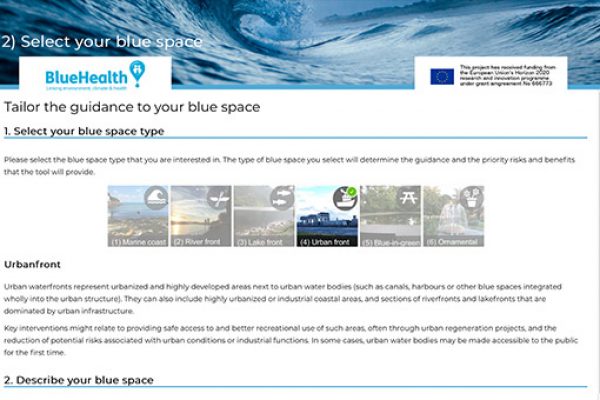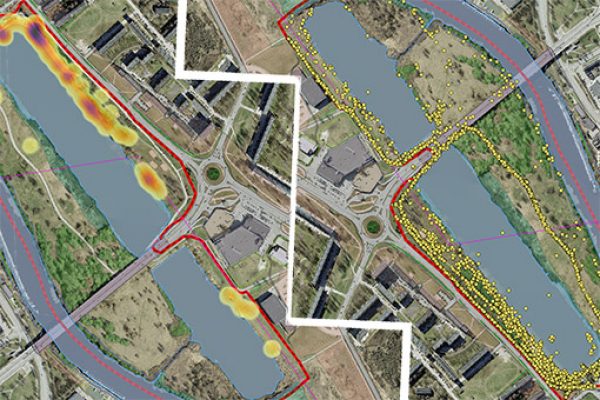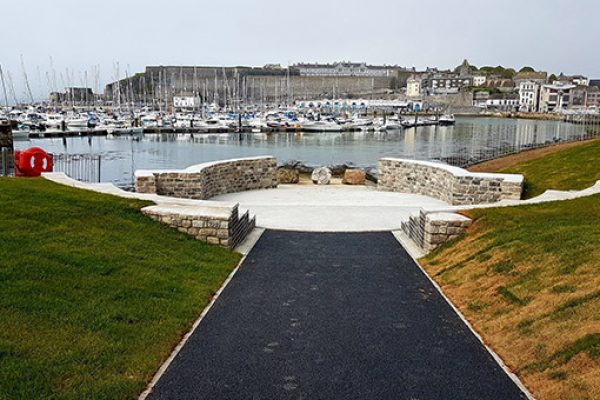BlueHealth Decision Support Tool gets to work
In November we tested out the BlueHealth Decision Support Tool to demonstrate how it works in practice.
Meeting in Plymouth, we welcomed members from the South West Coast Path, National Marine Aquarium, Plymouth City Council and local planners who worked on Plymouth’s urban beach regeneration project in Teats Hill.
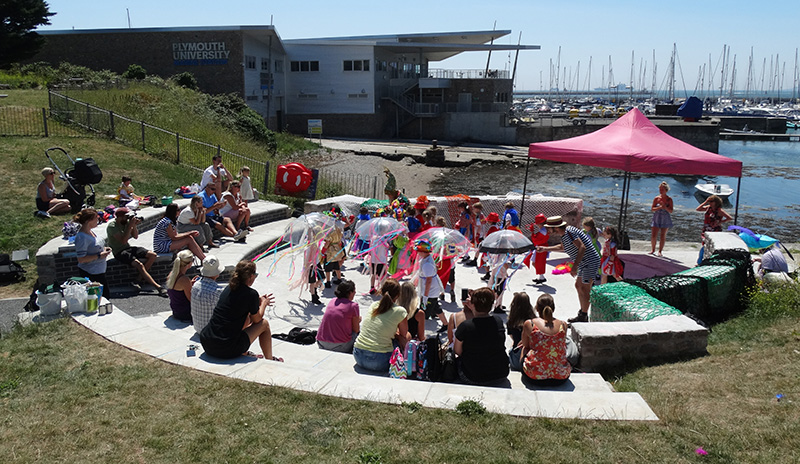
Locals enjoy Teat’s Hill in the summer.
BlueHealth’s Matthias Braubach and Jo Garrett introduced the Decision Support Tool (DST) to the group. The tool is currently under development and has been designed to help practitioners plan for and manage the risks and benefits of a particular blue space.
In this case, they followed the tool’s prompts to discuss factors relevant for the Teats Hill redevelopment, following a presentation about the site from Zoe Sydenham, Plymouth City Council.
Braving the rain, the group then visited the site to assess the perceived risks and benefits.
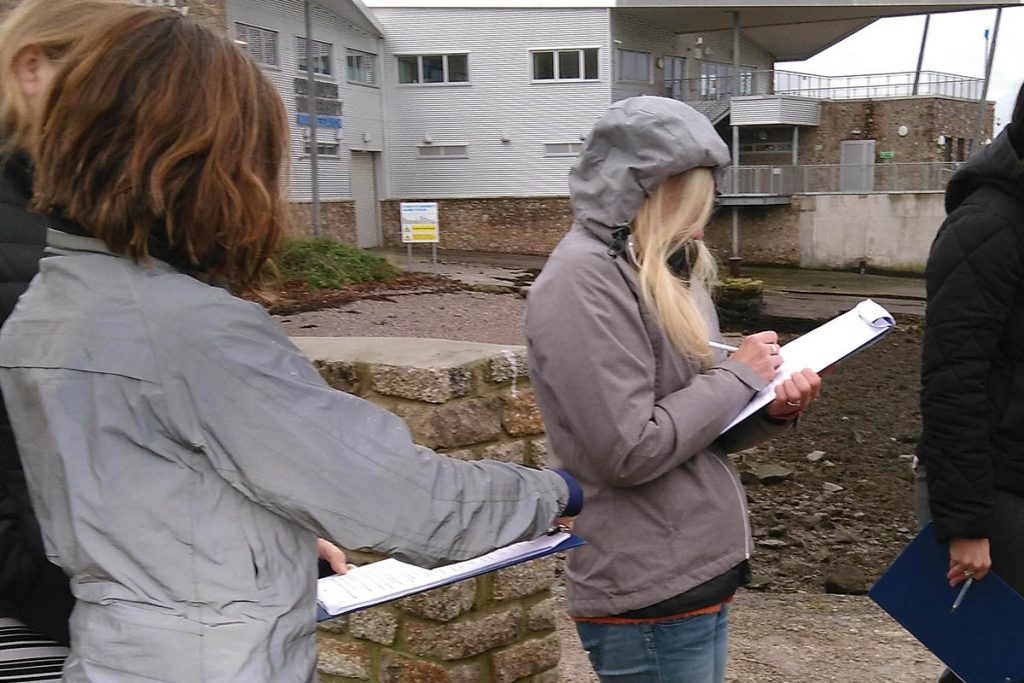
Members of the group evaluate the redeveloped space using the DST.
A useful tool for new planning bids
It was great to hear the group discussing how they could use the DST in their specific areas of work. Including for new funding applications, a benefit that we hadn’t previously predicted. They also agreed that the tool’s guidance and discussion prompts would be useful when justifying new planning bids.
We know there are still some final tweaks to be made, including to ensure the DST is user-friendly and accessible online. But this initial feedback is a great sign that the tool will be valuable for practitioners when it comes to redeveloping and optimising urban blue spaces.
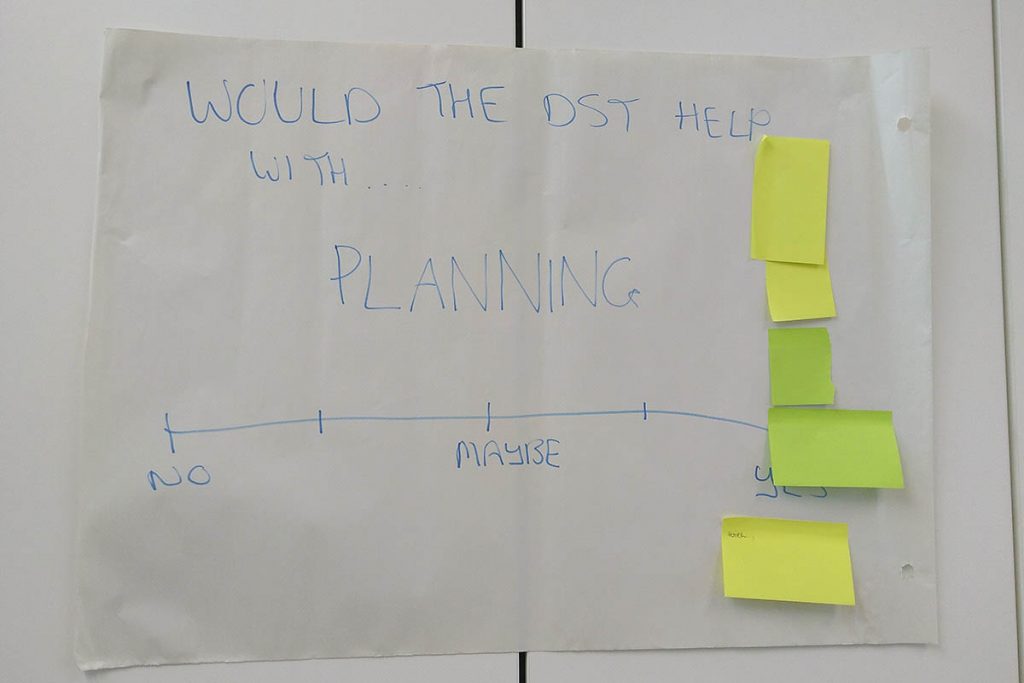
The group voted that the DST is useful to inform the planning of blue space.
If you are interested in finding out more about the BlueHealth Decision Support Tool (DST) please contact us via bluehealth2020@exeter.ac.uk.
With thanks to DST Developer, Francesco Palermo, from the Operational Group of Ocean Predictions and Applications (OPA) division of CMCC Foundation.


